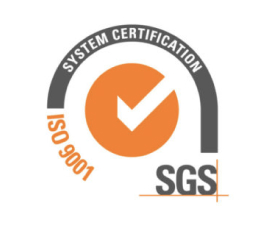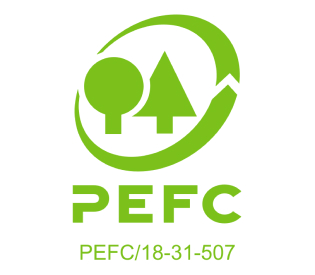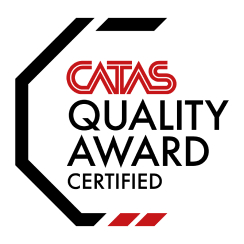Home •
CERTIFIED RELIABILITY
The FSC® brand identifies products containing wood coming from forests correctly and responsibly managed, according to rigorous environmental, social and economic standards, established and approved by the Forest Stewardship Council. It is an international, independent and non-profit Non-Governmental Organization that includes environmental and social groups, indigenous communities, forest owners, industries that work and trade wood, scientists and technicians who work together to improve forest management around the world. FSC® has a voluntary and independent certification system operating at an international level. At the basis there are rules for the traceability of products.
Traceability means the identification of all the steps that lead from the forest of origin to the finished product (chain of custody, from the English chain of custody – COC). Only companies in possession of a valid COC certificate can place the FSC® mark on their products.
Requesting, choosing and purchasing FSC® certified products means directly contributing to the growth of an ethical, responsible and virtuous system, stimulating the certification of new forest areas and new wood processing companies.
Certified products are supplied on request.
ISO 9001 is aimed at any type of public or private organisation, of any sector and size. It is the internationally recognized reference standard for the quality management of any organization or company that intends to respond simultaneously:
– the need to increase the effectiveness of internal processes with the consequent reduction of inefficiencies;
– to growing competitiveness in markets through improving customer satisfaction and loyalty.
The primary purpose of ISO 9001 is the continuous improvement of company performance, allowing the certified company to ensure its customers maintain and improve the quality of its goods and services over time. From this point of view, the ISO 9001 model represents a strategic tool as it is aimed at controlling costs, increasing productivity and reducing waste.
From a substantial point of view, this translates into the reduction of the risk of not respecting what was promised to customers and the ability to keep processes under control through performance measurement and the identification of adequate indicators.
The PEFC, Program for Endorsement of Forest Certification schemes, is an independent body for the evaluation of the environmental performance and sustainability of forest management systems.
It is a global certification system based on intergovernmental agreements and internationally recognized processes. This upholds the highest standards of sustainable forest management without exception.
Since 2001 it has required compliance with all the fundamental conventions of the ILO (International Labor Organization) and respects the specific needs of family forest properties and small forests with the lasting contribution to subsistence and rural development, to maintain or improve biodiversity and ecosystems, promote local employment by protecting the rights and health of workers, respect the traditions and rights of indigenous peoples and respect the laws, for example avoiding illegal cuts, corruption and child or forced labour.
Certified forests are regularly checked by independent inspectors.
Certified products are supplied on request.
CATAS has been operating as an independent third party in the product certification sector since 1993, with the CATAS QUALITY AWARD (CQA) brand, verifying and certifying the conformity of a product to standards and technical specifications.
The CQA certification involves periodic checks on the product and on the company’s production and organizational processes by CATAS, monthly checks on the product by the company and the periodic execution of laboratory tests. This provides greater added value to the products and ensures their compliance over time with the requirements defined by the standards:
European (EN), International (ISO) and National (UNI, DIN, BS, NF, ASTM, ANSI, etc.) Standards. Added to these are those carried out according to specific specifications requested by the customer.
Compared to the test report, which refers only to the sample sent by the customer at his discretion, the product certificate extends, by controlling and monitoring, the satisfaction of pre-established requirements to the entire production, thus reducing the risks due to non-compliant products and favoring, at the same time, the improvement of the products through monitoring by the body that issues the certification.




